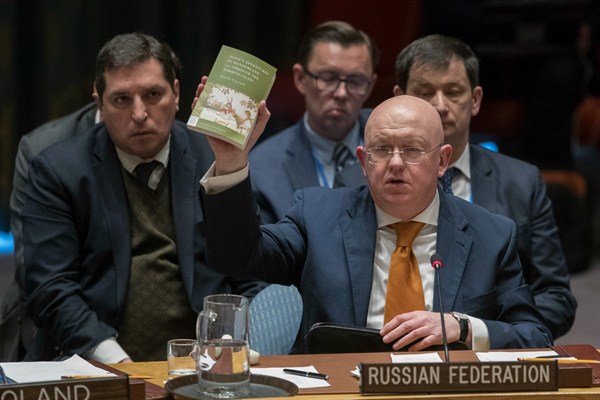If you wanted to see some quirky improvisational comedy in New York last week, the United Nations was the place to be.
On Thursday, Russia requested a public Security Council meeting to rebut charges that it was responsible for the poisoning of former Russian spy Sergei Skripal in the British town of Salisbury. This was the second time that the council has discussed the attempted murder of the Russian double-agent and his daughter using a sophisticated nerve agent, Novichok.
Britain called the first of these meetings in March as part of a well-coordinated campaign to put Russia on the defensive, which also included appeals to the Organization for the Prohibition of Chemical Weapons, or OPCW, as well as the European Union and NATO. The British Foreign Office may not be quite the diplomatic colossus it once was, but it still knows how to use multilateral organizations to get its message to the world.

